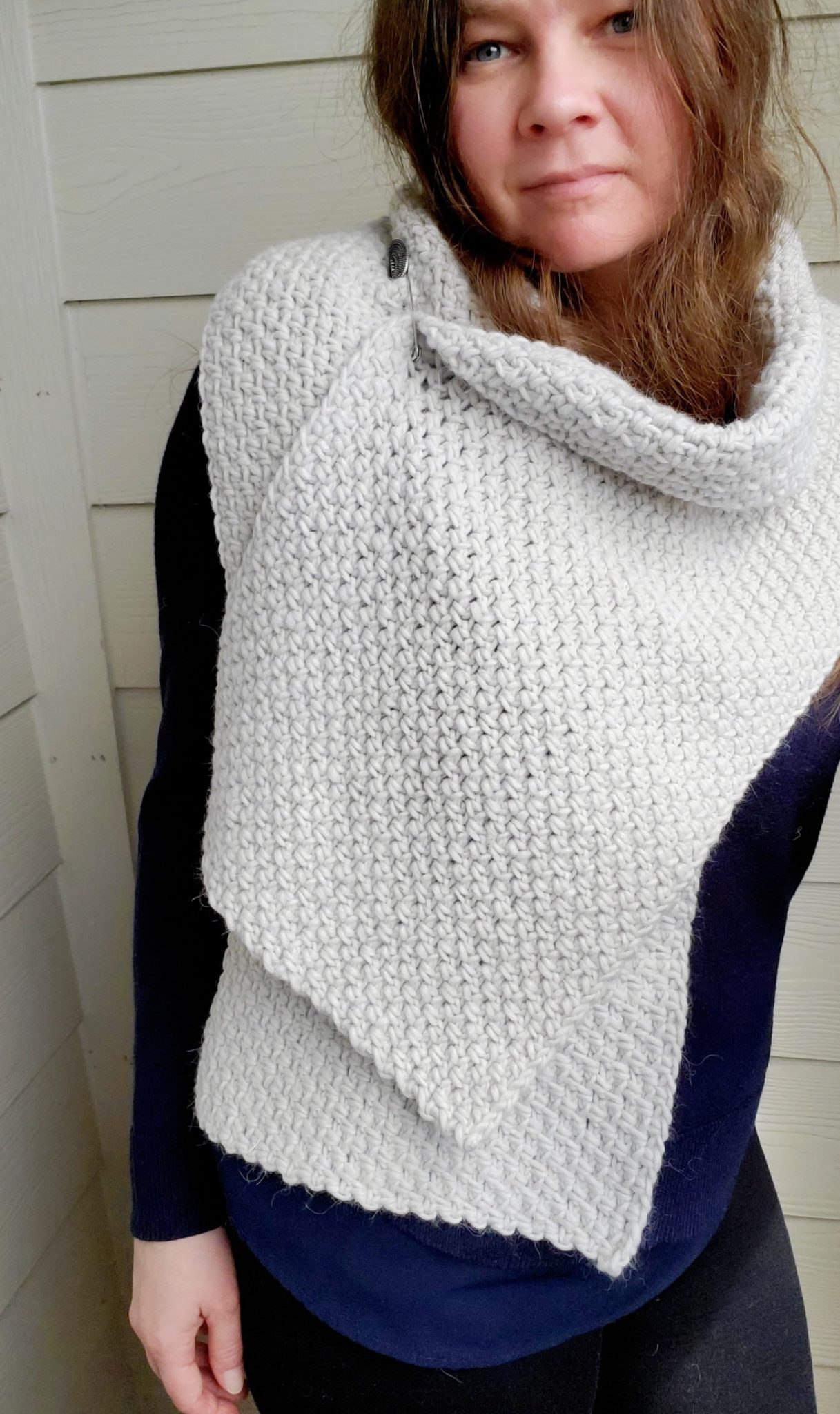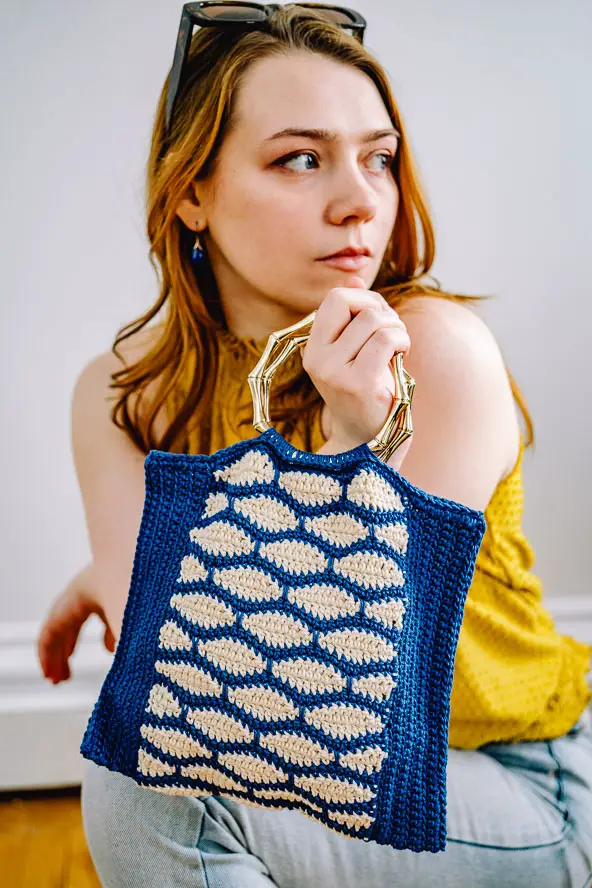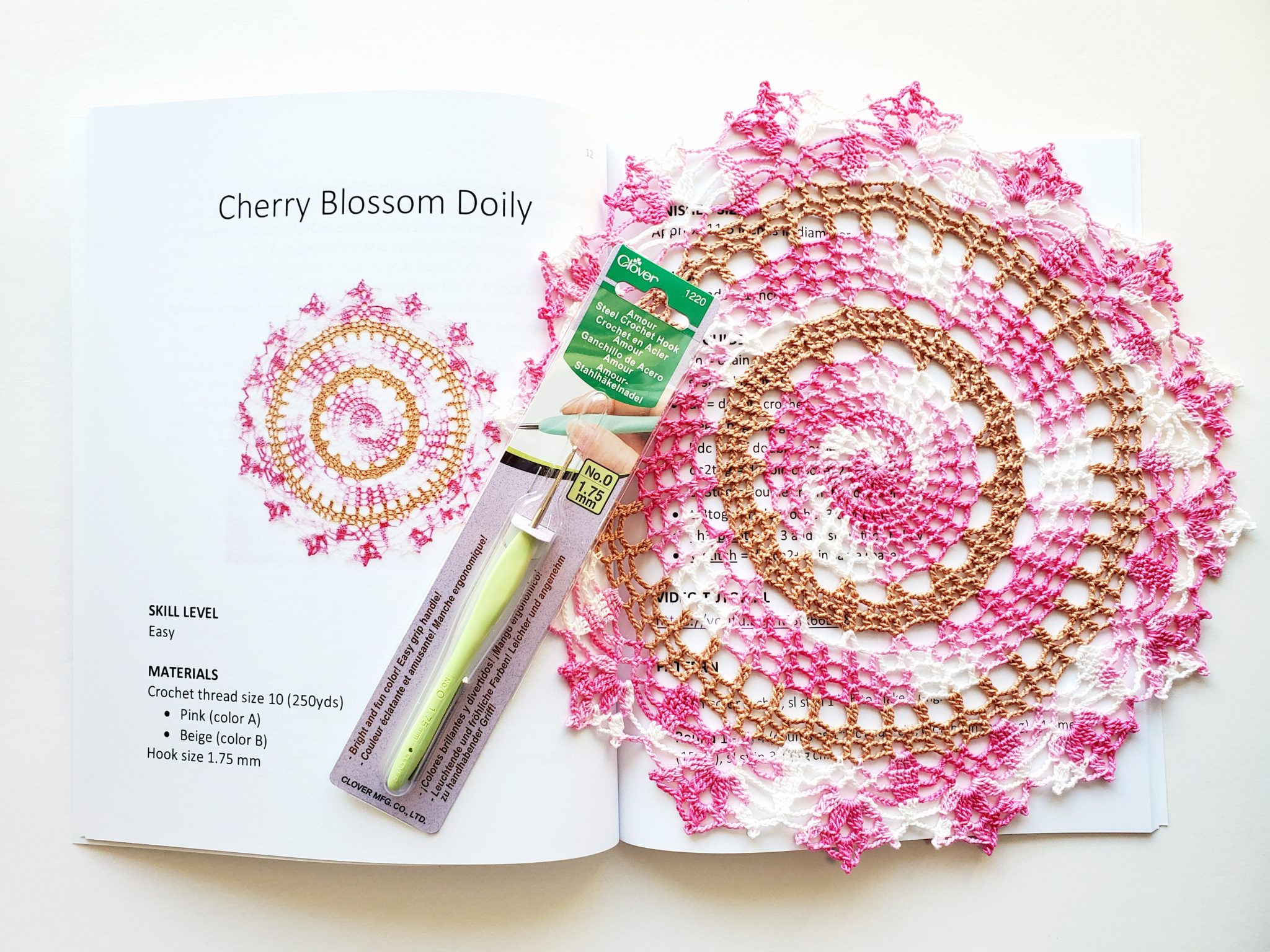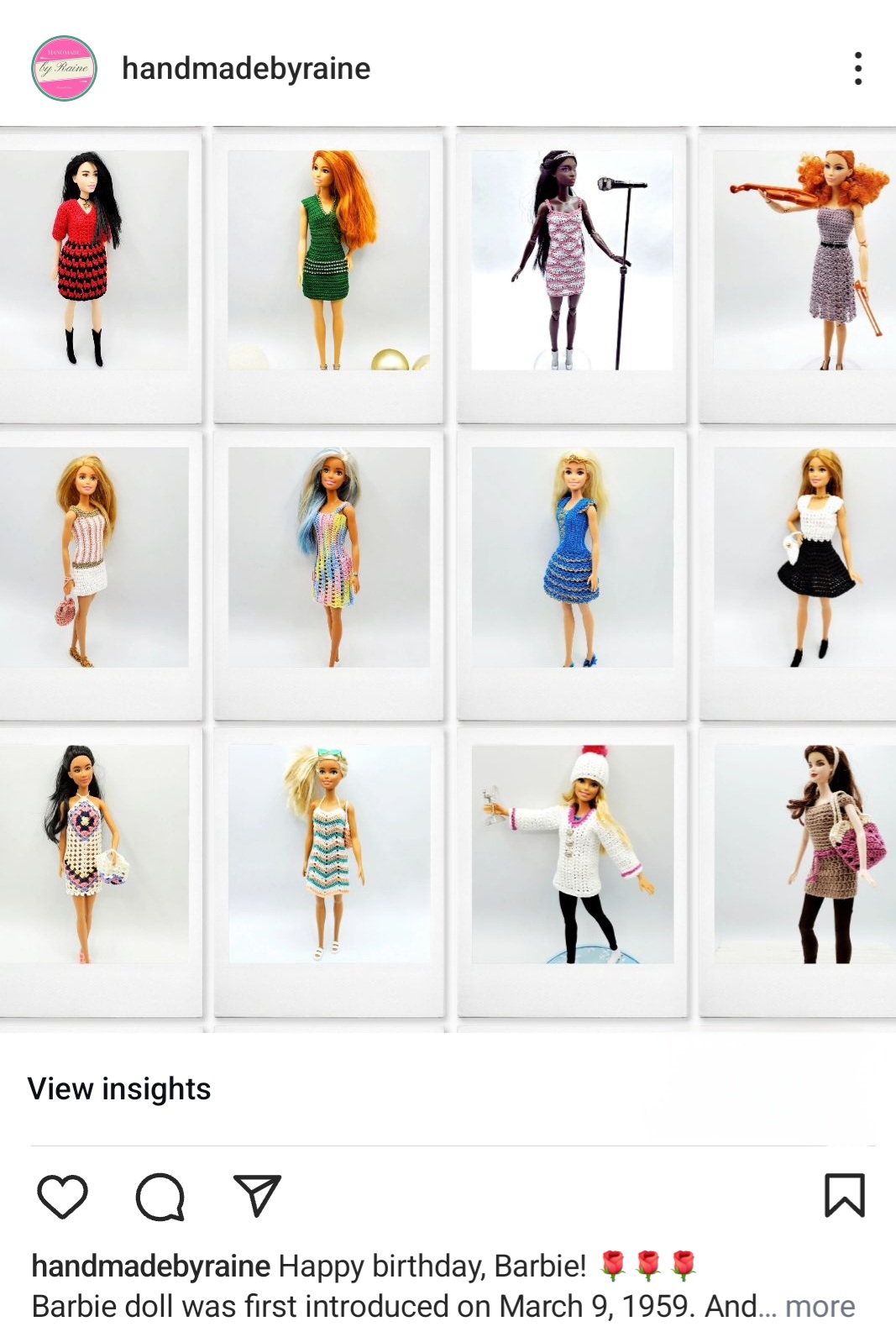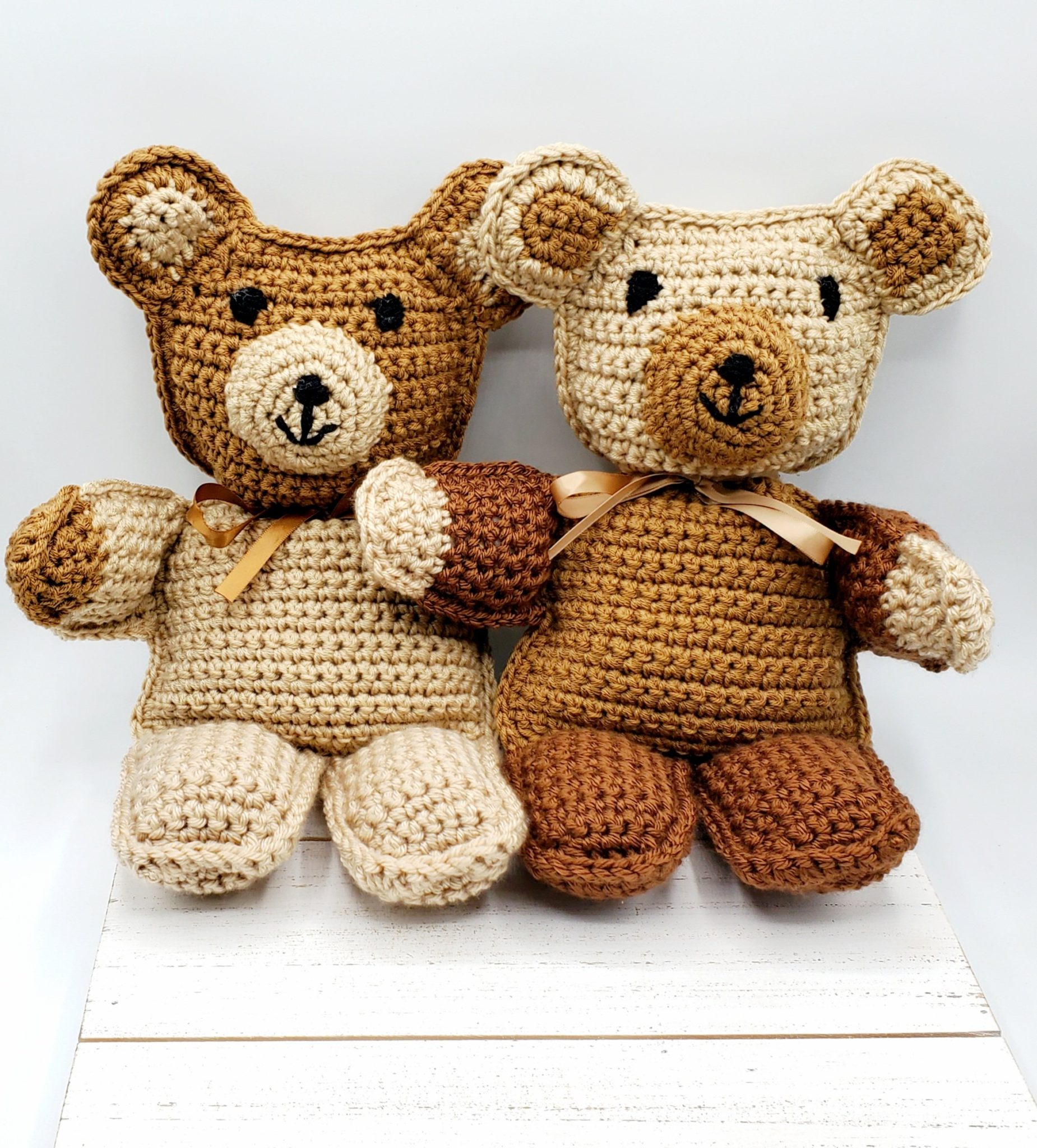I think snow is so beautiful and it adds that special feeling to winter, so I decided to crochet the Snowflake Table Runner. It’s a new design in my filet crochet series, and this is a great technique because it’s easy enough for beginners.


WHAT IS FILET CROCHET?
Filet means ‘net’ or ‘mesh’ in French. Using just chains and double crochet stitches and following the image chart it’s easy to do. You will find the full Snowflake chart below in the written pattern section.
Filet crochet consists of two types of blocks or squares making up the grid: open blocks are made with two chains and one double crochet, and solid blocks are made with three double crochet stitches. The first block on each row starts with additional double crochet but from there it’s either ch2+dc (open) or dc3 (solid).

BLOCKING TABLE RUNNER
The table runner definitely needs blocking after you finish it. I usually make the piece wet, stretch it out on blocking mats and attach it with pins. I also spray some starch to give it extra firm shape. Let it dry completely before removing the pins.


This pattern is featured in my Amazon pattern book “7 Filet Crochet Patterns: Holiday”. Enjoy the fast Prime delivery of Amazon Paperback (you get the actual pattern book shipped to you) or download the Kindle ebook here:
VIDEO TUTORIAL OF SNOWFLAKE TABLE RUNNER
WRITTEN PATTERN OF SNOWFLAKE TABLE RUNNER
If you prefer ad-free printable PDF pattern, you can get it on:
I use Aunt Lydia’s crochet thread size 10 (white = color A and blue = color B). One ball has 350 yards and one of each is more than enough for the table runner. Crochet hook is size 1.75 mm. My table runner measures about 21.5 inches long and 9.5 inches wide.
Abbreviations: ch = chain dc = double crochet beg = beginning sl st = slip stitch sc = single crochet Pattern notes: 1. With symmetrical pattern like Snowflake you can read the chart either from left to right or right to left, the count of blocks will be the same. 2. If you want to make the table runner longer, repeat rows 3-23 to add a snowflake.

- With color A ch 80.
- Row 1 = dc in 8th ch from the hook (=beg open block), *ch 2, skip 2 ch, dc in next ch, repeat from* (25 open blocks).
- Row 2 = ch 5 and turn, dc in next dc (=beg open block), *ch 2 and dc in next dc, repeat from*, finish the row with last dc in 3rd ch of beg 8-ch (25 open blocks).
- Row 3 = ch 5 and turn, dc in next dc, *ch 2 and dc in next dc, repeat from* and make 10 open blocks, dc 2 in next ch2-space, dc in next dc (=1 solid block), (ch 2 and dc in next dc) three times for 3 open blocks, dc 2 in next ch2-space, dc in next dc (=1 solid block), *ch 2 and dc in next dc, repeat from* and make 10 open blocks, finish the row with last dc in 3rd ch of beg 5-ch.
- Row 4 = ch 5 and turn, dc in next dc, *ch 2 and dc in next dc, repeat from* and make 11 open blocks, dc 2 in next ch2-space, dc in next dc (=1 solid block), ch 2 and dc in next dc (=1 open block), dc 2 in next ch2-space, dc in next dc (=1 solid block), *ch 2 and dc in next dc, repeat from* and make 11 open blocks, finish the row with last dc in 3rd ch of beg 5-ch.
- Row 5 = ch 5 and turn, dc in next dc, *ch 2 and dc in next dc, repeat from* and make 12 open blocks, dc 2 in next ch2-space, dc in next dc (=1 solid block), *ch 2 and dc in next dc, repeat from* and make 12 open blocks, finish the row with last dc in 3rd ch of beg 5-ch.
- Row 6 = (starting and finishing each row same way) 5 open blocks, 1 solid block, 5 open blocks, 1 solid block, 1 open block, 1 solid block, 5 open blocks, 1 solid block, 5 open blocks.
- Row 7 = 6 open blocks, 1 solid block, 2 open blocks, 1 solid block, 2 open blocks, 1 solid block, 2 open blocks, 1 solid block, 2 open blocks, 1 solid block, 6 open blocks.
- Row 8 = 7 open blocks, 1 solid block, 1 open block, 2 solid blocks (1st solid block = dc in each next 3 dc, 2nd solid block = dc 2 in next ch2-space + dc in next dc), 3 open blocks, 2 solid blocks (1st solid block = dc 2 in next ch2-space + dc in next dc, 2nd solid block = dc in each next 3 dc), 1 open block, 1 solid block, 7 open blocks.
- Row 9 = 9 open blocks, 3 solid blocks (1st and 2nd solid blocks = dc in each next 6 dc, 3rd solid block = dc 2 in next ch2-space + dc in next dc), 1 open block, 3 solid blocks (1st solid block = dc 2 in next ch2-space + dc in next dc, 2nd and 3rd solid blocks = dc in each next 6 dc), 9 open blocks.
- Keep following the chart until 65 rows are completed. Fasten off, cut off color A.
- Edge round 1 = join color B with sc in upper left corner (last open block), sc one more in same space, sc 1 in each stitch and each space, except in corner spaces sc 3, finish the round with 1 sc in beginning space, sl st in 1st sc.
- Edge round 2 = ch 3 (counts as first dc), in same stitch: dc + ch3-picot (=ch 3 and sl st in 1st ch) + dc2, ch 2, skip next sc, *sc 1 in each next 2 sc, skip next sc, ch 1, in next sc dc2 + ch3-picot + dc2, ch 1, skip next sc, repeat from*. In each corner (ch2 instead ch1) ch2, skip next sc, in corner sc dc2 + ch3-picot + dc2, ch2, skip next sc, repeat from*. Sl st in 3rd beginning ch.
- Fasten off, cut off color B.
- Weave in all ends, block the table runner.
If you enjoyed crocheting this table runner, check out my other table runner crochet patterns here.
HAPPY CROCHETING!
COPYRIGHT:
You may not sell my pattern or claim it as your own.
You may make items to sell (i.e. on Etsy, at craft fairs) from my pattern but I ask that you link back to my blog handmadebyraine.com and provide credit for the pattern.
You are welcome to share my pattern on social media as long as you link back directly to my blog post (providing the link). No copy & paste of my pattern will be allowed under any circumstances.
Some links are affiliate, meaning I’ll make a small commission if you make a purchase, but this is at no cost to you.



